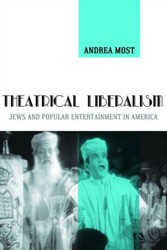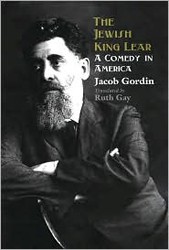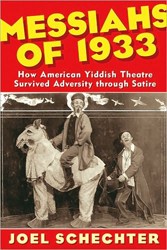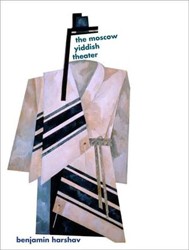This is a book as large and brassy as the street and form of entertainment it celebrates. A companion to the six-part PBS documentary series on Broadway musicals, it is the first comprehensive history of the musical, from its roots at the turn of the 20th century (before “Broadway” was situated on Broadway) through the lavish productions Broadway audiences have come to know and appreciate. The text, divided by decades, is illustrated with photographs, sheet music covers, posters, scenic renderings, production stills, rehearsal shots and caricatures — both black and white and color images. Supplementing the narrative are sidebars that highlight the stars, the shows, and the songs. Especially interesting are the essays, which include lots of anecdotes and Broadway lore, written by some of Broadway’s most captivating stars. But, you might ask, why is this book being reviewed in Jewish Book World? Examining its index, one sees no entry under “Jews” and only one entry under “Jewish”, and that is for Jewish variety shows that were inspired by Irish variety shows; but truth be told, were it not for Jews, the Broadway musical would not be the Broadway musical as it exists today. Not to negate the contributions of other ethnic groups, this review will note the Jewish contributions to the Broadway musical that are described in the book, but without religious/ethnic identification.
I think you will agree that Jewish participation in the Broadway musical is a natural outgrowth of our heritage and traditions. We have a tradition of story-telling, of entertaining (think of the wedding badchan), and of musicality (think of the chazzan). These tendencies and traditions led to the development of Yiddish theatre in Poland and its emigration to New York’s Second Avenue. Then think of immigrant Jews, mostly settling in New York at the turn of the century when the history of the Broadway musical begins.
Just as the immigrants’ first money-raising ventures involved peddling, so did musically talented young Jewish immigrants peddle songs — first songs written by others and, later, songs written by themselves. That is how Izzy Baline, whose father was a cantor, became a song peddler. First he sang songs in the streets for pennies, then in a cafe as a singing waiter (writing parodies to other people’s melodies), later as a writer hired to write parodies to someone else’s music — until he began to write his own music and lyrics under the name of Irving Berlin. There are a plethora of stories like Berlin’s, but you have to read this book to find them out. That combination of musicality, literary tradition and business aptitude resulted in the outsize contribution of Jews to the musical theatrical venue. At the same time that Baline/Berlin was plugging songs, a theatrical producer, Florenz Ziegfeld, was staging glamorous girl-filled revues that needed music — in other words, the first lavish musicals. Different trends, different political and economic events triggered changing styles and topics, and musical theatre adjusted to them. Furthermore, in every decade there appeared some talented performer, composer, lyricist, director or producer who would bring the Broadway musical to a new level and/or in a different direction, among them the Jewish Leonard Bernstein, Fannie Brice, Eddie Cantor, Irving Caesar, Bob Fosse, George and Ira Gershwin, Max Hart, Oscar Hammerstein, Anna Held, Al Jolson, George S. Kaufman, Jerome Kern, Tony Kushner, the Marx Brothers, Ethel Merman, Richard Rogers, Billie Rose, Jerry Ross, Arthur Schwartz, Steven Sondheim, Sophie Tucker, Harold Prince, the Schubert brothers, Kurt Weill, and that communicator of show biz, Walter Winchell, among others.
There can be no better guides than these two experts in the theatre — Michael Kantor is a writer, director and producer in theatre and television, while Laurence Maslon is an associate arts professor at New York University’s Tisch School of the Arts — to the phenomena known as ‘The American Musical’ and Broadway, New York City.





